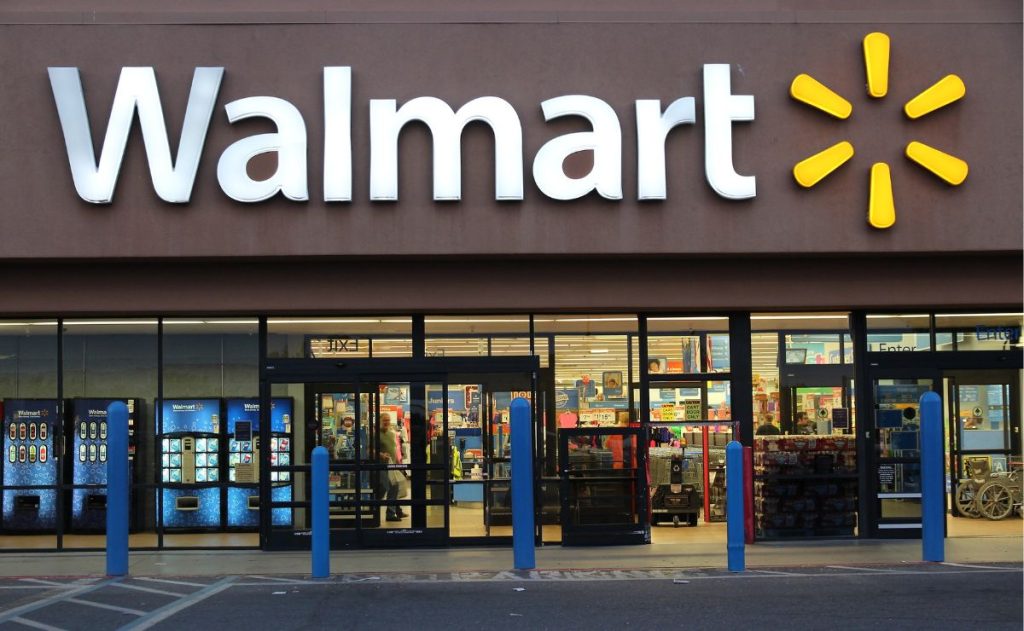To understand what happened with the banana trick theft scandal in self-checkout, we must begin to understand what Walmart’s security systems were. Missed Scan Detection is a system deployed by Walmart to detect underhanded behavior at its checkout counters. The system uses advanced cameras to monitor activity at the checkouts.
These are various techniques used by individuals to steal items from self-checkout registers in Walmart. The “banana trick” involves ringing up a more expensive item with a code for a cheaper item. “The pass around” refers to when a more expensive item is not scanned at all. “The switcheroo” involves placing the sticker from a cheaper item over the barcode of a more expensive item, matching the weights to avoid an alert.
The Shocking Truth: Unveiling the Alarming Scale of the Banana Trick Epidemic at Walmart Self-Checkout
According to a survey by Voucher Codes Pro, 20% of the 2,634 people surveyed admitted to stealing from self-checkout registers. Over half of those individuals claimed they did so because they believed they were unlikely to be detected by store security.
According to a group of Walmart employees, the Missed Scan Detection system from Everseen, an AI firm in Ireland, has not effectively solved the issue of theft at registers and self-checkout kiosks. The employees claim that the system often misidentifies innocent behavior as theft and fails to stop actual instances of stealing. They were reportedly at their “breaking point” with the technology, which has been in use at Walmart stores since 2017.
Walmart employees expressed disappointment that the company, one of the largest retailers in the world, was relying on a technology that they believed was flawed. The AI system, Everseen, was deployed to prevent shoplifting at registers and self-checkout kiosks. However, the workers claim that it frequently made mistakes, leading to its internal nickname “NeverSeen.”
What are false negatives and how do they influence autopayments?
False negatives in the AI system, such as someone stealing a T-bone at the price of a banana, may not have serious consequences. However, false positives, or false accusations of shoplifting, could have devastating effects, depending on a person’s circumstances, including the possibility of a wrongful conviction.
Walmart provided its employees with handheld scanners to help detect instances of theft at the register. These scanners display what has been scanned and how many items, making it easier for workers to identify individuals with un-scanned items.
An Alabama woman was awarded $2.1 million in damages after being falsely arrested for shoplifting at a Walmart. Lesleigh Nurse of Semmes claimed that she was stopped while leaving the store with groceries she had already paid for, but the self-checkout scanning device froze. Despite her explanation, workers did not believe her and she was arrested for shoplifting. After the case was dismissed, she claimed that Walmart threatened her. A jury in Mobile County ruled in her favor.
After the case against Nurse was dismissed, Walmart threatened to file a civil suit unless she paid $200 in settlement for the $48 in groceries. Nurse countersued and was awarded $2.1 million in damages. According to CBS News, the trial revealed that Walmart and other major retailers routinely use such settlements in states where it’s allowed by law, and that Walmart made hundreds of millions of dollars over a two-year period. Similar cases have been reported in Maryland and Texas.
What percentage of people admit to stealing from Walmart’s self-checkout kiosks?
Approximately 20% to 33% of shoppers have admitted to stealing from self-checkout lanes at least once. The survey also found that around 57% of those who admitted to stealing from self-checkouts did so because they couldn’t get an item to scan. Self-checkouts have been a target for shoplifters, and retailers experience a 50% higher rate of loss when using these systems compared to traditional cashier checkout.
It is important for businesses to take proactive steps to protect their profits and ensure that customers are not taking advantage of the system. Walmart’s “Scan and Go” self-checkout mobile app led to a 50% decrease in theft at pilot locations. Retailers can also connect handheld devices to self-checkout machines that display which ones are in use and which are open, making it easy for workers to spot those who have items in their hands or bags that haven’t been scanned. Encouraging the use of mobile apps and handheld devices can help reduce theft at self-checkout kiosks.
